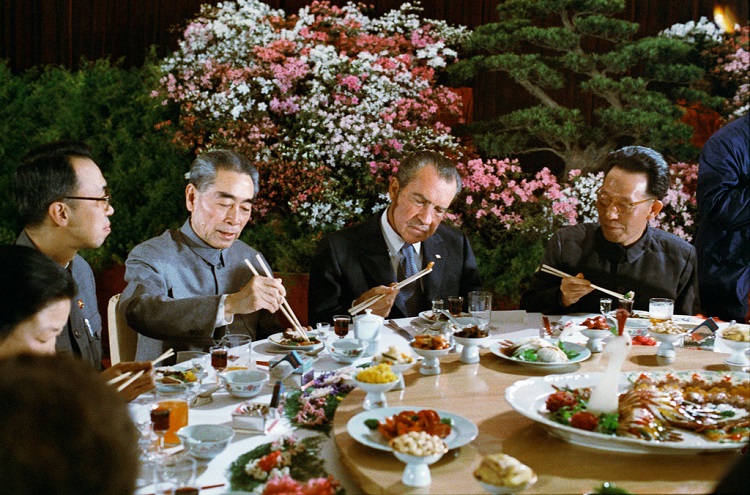US foreign policy and the start of a new cold war

America’s greatest error was not the Iraq war, calamitous self-inflicted wound though it was. Rather, it was adopting Francis Fukuyama’s now discredited idea that the end of the Cold War marked ‘the universalization of Western liberal democracy as the final form of human government’.
That proposition rested on the notion that individual liberty, supported by mature democratic institutions, is a prerequisite for long-term social stability and national economic prosperity. It is a falsehood sustained for decades by an admirable truism of the American soul: the belief that everyone, deep down, is secretly an American—that if you’re just given the right opportunities, institutions and freedoms, you too will hold the same values, dreams and ideals.
This attitude sustained American foreign policy towards Beijing for 40 years. Washington actively fostered China’s rise, thinking that as people grew more educated and prosperous they would invariably demand and achieve greater political freedom—and that in the end, prosperity would socialise a newly democratic China as a ‘responsible stakeholder’ in the US-led global order.
When this process began, China’s economy was roughly the same size as Australia’s. Since 1979, China’s economy has grown 50-fold. Instead of democratic reform, Chinese President Xi Jinping has centralised authority, changed the constitution and extended his term indefinitely. Meanwhile, China’s government is rolling out a so-called social credit system profiling every citizen’s financial records, social media, purchasing behaviour and political affiliation—extending absolute control under an AI dystopia, in real time.
America’s policy of fostering Chinese growth has led the United States to near disaster. In Vice President Mike Pence’s speech on China, however, there was at last a formal declaration of failure:
After the fall of the Soviet Union, we assumed that a free China was inevitable. Heady with optimism at the turn of the 21st century, America agreed to give Beijing open access to our economy, and we brought China into the World Trade Organization.
Previous administrations made this choice in the hope that freedom in China would expand in all of its forms—not just economically, but politically, with a newfound respect for classical liberal principles, private property, personal liberty, religious freedom—the entire family of human rights. But that hope has gone unfulfilled.
Minus the theatrical flair, this was the Iron Curtain speech of the 21st century. The post–Cold War era is over. The China–US struggle has now begun.
During my lifetime, no political and strategic analysis has been so reliably abysmal as commentary on President Donald Trump and his administration. One source of constant headaches is the misinterpretation of his ‘America First’ foreign policy. Put simply, Trump’s approach can be summarised in six guiding principles:
- Sovereignty is the highest priority.
- Self-interest trumps ideology.
- The United States is a country like any other.
- Trade must be reciprocal.
- Alliances are policy and strategy, not identity.
- Commerce is not zero-sum, but power is.
Some have interpreted this to mean that Trump’s America is withdrawing from Asia in some kind of neo-isolationism. In fact, the exact opposite is true.
At its core, ‘America First’ is the consequence of a strategic rivalry between two great powers decoupled from any global ideological struggle. Americans rightly believe that democracy and individual liberty are superior to Confucian dictatorship for human wellbeing. What ‘America First’ discounts, however, is the belief that Western liberalism is necessarily more successful with regard to governance, economic growth or social harmony. After all, despite the questions surrounding the CCP’s legitimacy, the American political system is currently consumed by ideological division and deepening partisan hatred.
The China–US cold war contrasts with the struggle against the Soviet Union, where American defeat meant the collapse of global capitalism and classical liberalism. It resulted in an alliance framework organised by geography yet fused by ideology. This time around, however, American defeat means, well, American defeat. This fact, more than any other, guarantees that ‘America First’ will continue to attract adherents domestically and dominate American foreign policy thinking long after Trump himself leaves office.
All this has major implications for Australia. As a Western US ally marooned on the Asian periphery, surviving the new US–China cold war will easily be the most challenging foreign policy trial our nation has ever faced. And while the motivating cause has been misdiagnosed—something that risks further miscalculations down the line—it is heartening to see commentators from across Australia’s strategic traditions calling for a revised doctrine to respond to our rapidly deteriorating environment. Goodness knows we need it.